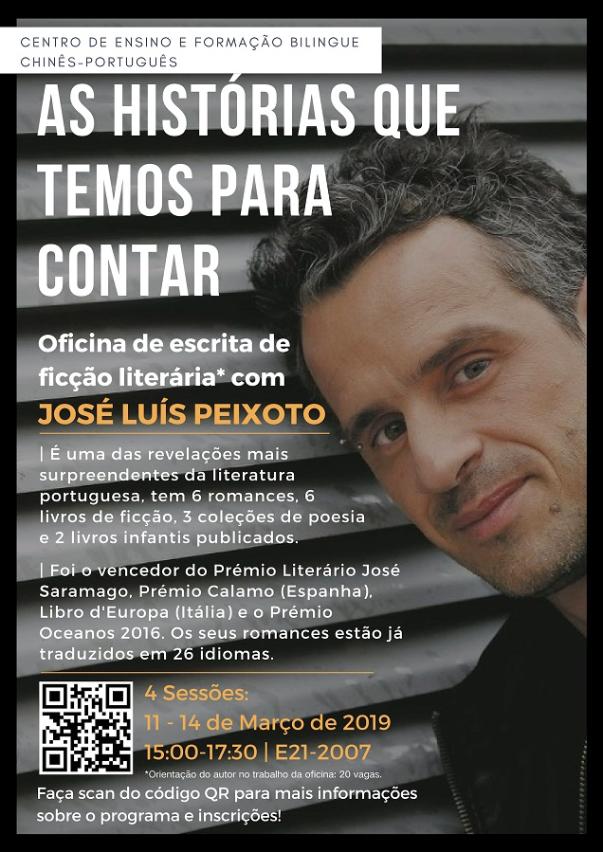 UM will hold a workshop on Portuguese fiction writing
UM will hold a workshop on Portuguese fiction writing
The Chinese-Portuguese Bilingual Teaching and Training Centre (CPC), under the University of Macau (UM) Department of Portuguese, will hold a workshop on Portuguese fiction writing from 11 March to 14 March. José Luís Peixoto, a renowned Portuguese writer, will be the keynote speaker.
Titled ‘The Stories We Have to Tell’, the workshop will comprise four sessions. Participants will learn more about the process of developing the structure of a story and the use of creative writing techniques. Upon completion of the workshop, each participant is expected to create a story under the guidance of Peixoto. Through the event, the CPC aims to promote the use of Portuguese language and help those interested in creative writing in Portuguese to acquire the basic techniques.
After receiving the Young Creators Award from the Portuguese Institute of Youth for Morreste-me, a work of fiction dedicated to his father, Peixoto in 2001 again stood out from many of his peers, this time winning the José Saramago Literary Prize from the Circle of Readers Foundation, with his novel Nenhum Olhar. So far, he has published six novels, six fiction books, three poetry collections, and two children's books. His works have been translated into more than 25 languages.
The event will be held from 3:00pm to 5:30pm, in Room 2007, Faculty of Arts and Humanities (E21), UM. It will be conducted in Portuguese. Those who are interested in this area with at least B1 / B2 written and oral Portuguese proficiency are welcome to join. For enquiries, please call 8822 4532 or email to bilingualCentre@um.edu.mo or ananunes@um.edu.mo.


